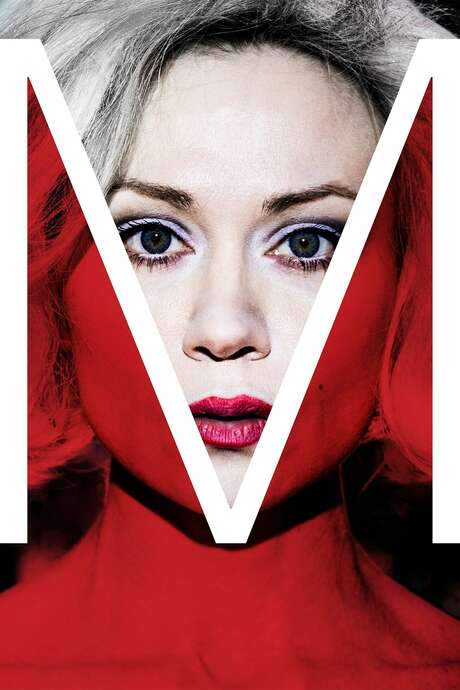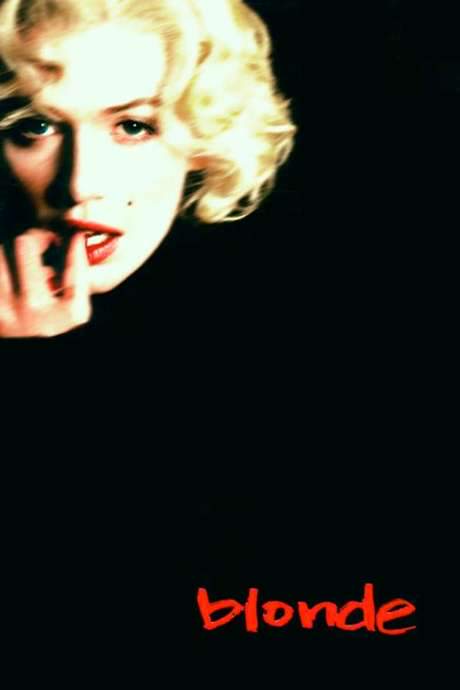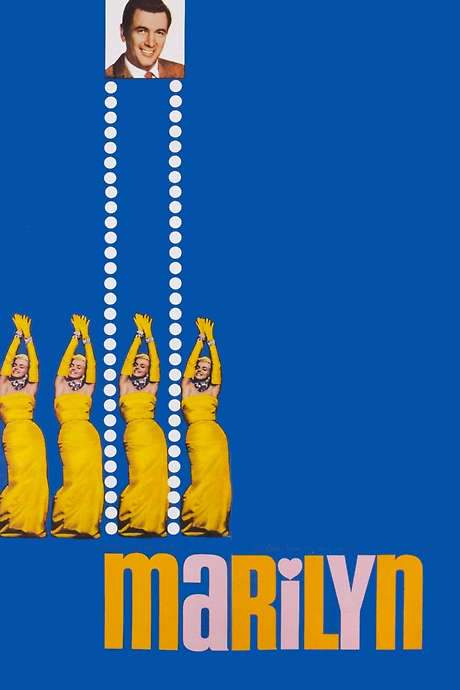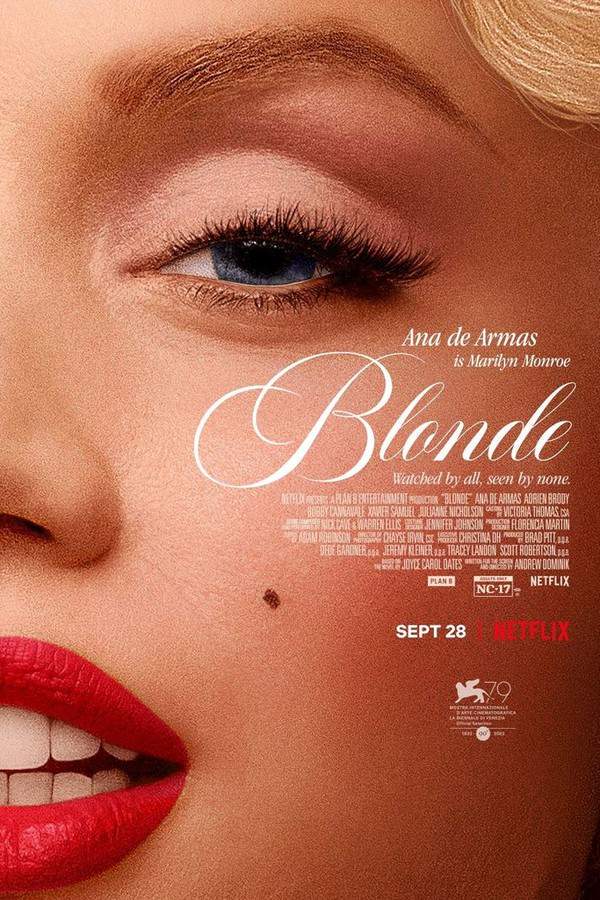
Blonde offers a fictionalized exploration of the life of Marilyn Monroe, beginning with her difficult upbringing as Norma Jeane and following her rise to Hollywood fame. The film portrays her passionate relationships and the stark contrast between her iconic public image and the private struggles she faced. It’s a biographical drama that blurs the lines between reality and fantasy, offering a poignant look at the woman behind the legend.
Does Blonde have end credit scenes?
No!
Blonde does not have end credit scenes. You can leave when the credits roll.
Meet the Full Cast and Actors of Blonde
Explore the complete cast of Blonde, including both lead and supporting actors. Learn who plays each character, discover their past roles and achievements, and find out what makes this ensemble cast stand out in the world of film and television.

Garret Dillahunt
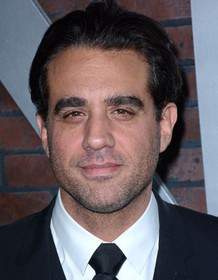
Bobby Cannavale
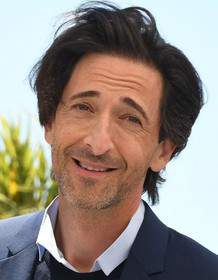
Adrien Brody

Julianne Nicholson
Gladys

Scoot McNairy

Ana de Armas
Norma Jeane

Caspar Phillipson

Lily Fisher
Young Norma Jeane

Lucy DeVito

Michael Drayer
Deputy Will Bonnie

Patrick Brennan
Joe (Photo Shoot Photographer)
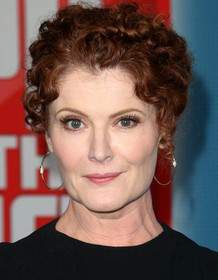
Rebecca Wisocky
Yvet

Rob Brownstein
Acting Coach

Ryan Vincent
Uncle Clive

Sara Paxton
Miss Flynn

Toby Huss

Tygh Runyan
Norma Jeane's Father

Vanessa Lemonides
Marilyn Singing Voice

Xavier Samuel
Cass Chaplin
External Links and Streaming Options
Discover where to watch Blonde online, including streaming platforms, rental options, and official sources. Compare reviews, ratings, and in-depth movie information across sites like IMDb, TMDb, Wikipedia or Rotten Tomatoes.
Ratings and Reviews for Blonde
See how Blonde is rated across major platforms like IMDb, Metacritic, and TMDb. Compare audience scores and critic reviews to understand where Blonde stands among top-rated movies in its genre.

The Movie Echo Score
Blonde generates a stark divide between viewers, drawing praise for Ana de Armas’s performance and the film’s striking visual composition while being faulted for its protracted runtime and uneven narrative structure. Critics highlight moments of artistic audacity and meticulous cinematography, yet consistently denounce the exploitative tone and monotony that diminish emotional engagement. The synthesis of strong individual elements with pervasive pacing and thematic issues results in a movie that feels compelling yet exhausting, limiting its broader appeal.
The Movie Echo Score Breakdown for Blonde

Art & Craft
Artistic direction oscillates between striking visual ambition and jarring inconsistency. Critics commend the film’s meticulously crafted cinematography and daring composition, yet repeatedly note uneven pacing and muddled editing that compromise cohesion. The result is a visually arresting yet structurally uneven work that polarizes opinion.

Character & Emotion
Ana de Armas delivers a compelling, nuanced portrayal that many reviewers cite as the film’s standout element. Nonetheless, criticisms arise concerning limited character development and occasional accent inconsistencies that pull viewers from immersion. The performance shines amid a broader sense of emotional superficiality.

Story & Flow
The narrative is frequently described as protracted and uneven, with pacing that drags through three hours of repetitive tragedy. While some note its audacious, fever‑dream quality, most critics highlight a lack of coherent arc and superficial treatment of Monroe’s biography, rendering the story more burdensome than engaging.

Sensory Experience
Visual style and sound design receive consistent commendation, with reviewers praising immaculate cinematography, atmospheric score, and striking color palettes that immerse the audience. However, the relentless intensity of these sensory choices can feel overwhelming, especially when paired with the film’s relentless emotional weight, creating a mixed sensory experience.

Rewatch Factor
Rewatch potential is limited by the film’s exhaustive length and unrelenting somber tone, which many viewers find taxing after a single viewing. While aficionados of Monroe may appreciate its atmospheric depth, the broader audience is likely to avoid repeat engagements, resulting in low replay value.

50
Metascore
4.7
User Score


42%
TOMATOMETER

36%
User Score

5.4 /10
IMDb Rating

2.1
From 302 fan ratings

4.14/5
From 7 fan ratings
Take the Ultimate Blonde Movie Quiz
Challenge your knowledge of Blonde with this fun and interactive movie quiz. Test yourself on key plot points, iconic characters, hidden details, and memorable moments to see how well you really know the film.
Marilyn Monroe: A Complex Journey: Test your knowledge about the life and struggles of Norma Jeane, also known as Marilyn Monroe, as portrayed in the movie 'Blonde'.
What was the name of Norma Jeane's mother?
Gladys
Dorothy
Mabel
Evelyn
Show hint
Awards & Nominations for Blonde
Discover all the awards and nominations received by Blonde, from Oscars to film festival honors. Learn how Blonde and its cast and crew have been recognized by critics and the industry alike.
95th Academy Awards 2023

76th British Academy Film Awards 2023

29th Annual Screen Actors Guild Awards 2023

80th Golden Globe Awards 2023

Full Plot Summary and Ending Explained for Blonde
Read the complete plot summary of Blonde, including all major events, twists, and the full ending explained in detail. Explore key characters, themes, hidden meanings, and everything you need to understand the story from beginning to end.
As a young girl, Norma Jeane Mortenson (Ana de Armas) grows up under the care of her mentally unstable mother, Gladys (Julianne Nicholson). On her seventh birthday in 1933, she receives a framed photo of a man who her mother claims is her father. That very night, a fire erupts in the Hollywood Hills, prompting Gladys to take Norma Jeane there, insisting that her father resides nearby. However, their visit is cut short by police intervention, forcing them back home. In a fit of rage, Gladys nearly drowns Norma Jeane in the bathtub after she inquires about her father, but ultimately lets her go. Gladys chillingly states that her father abandoned them because he didn’t want Norma Jeane to be born.
Seeking refuge, Norma Jeane escapes to a neighbor’s house, where she finds solace. A few days pass before she is placed in a foster home while Gladys is committed to a mental institution, deemed unfit for parenting. Though she insists she is not an orphan, Norma Jeane is forced into the foster care system.
By the 1940s, she adopts the persona of “Marilyn Monroe,” becoming a celebrated pin-up girl as her image graces magazine covers and calendars. However, her aspirations to break into acting come at a high cost; she is sexually assaulted by the president of a film studio, a man known as Mr. Z (David Warshofsky). This traumatic experience leaves her deeply scarred, leading her to cope by dissociating herself from the pain, allowing her character, Marilyn, to absorb the harsh realities of the industry.
In 1950, Norma Jeane auditions for a role in Don’t Bother to Knock, but her performance crumbles as she breaks down in tears. Despite her emotional turmoil, the casting director recognizes her potential and grants her the role. A decade later, she visits her mother in the hospital, but Gladys fails to recognize her. Eager to uncover the truth about her past, Norma Jeane searches for any information regarding her father in studio records but finds nothing substantial.
As her career takes off, she develops intimate relationships with Charles “Cass” Chaplin Jr. (Xavier Samuel) and Edward G. “Eddy” Robinson Jr. (Evan Williams), with whom she engages in a polyamorous arrangement. Her breakout moment comes with the 1953 film Niagara. However, when spotted in public with Cass and Eddy, the studio head admonishes her to limit her public appearances with them, intensifying her internal struggle between the public persona of Marilyn and her true self.
Joyfully discovering she is pregnant, Norma Jeane grapples with the fear that her child could inherit her mother’s mental struggles and opts for an abortion. Yet, on the day of the procedure, she has a change of heart, but tragically, it is too late. While she becomes a household name, earning a fraction of what her male co-stars earn—$5,000 per film compared to their $100,000—her sense of worth diminishes.
Her path crosses with Joe DiMaggio (Patrick Brennan), a retired athlete who resonates with her desire to transcend Hollywood’s superficiality for more serious roles in New York City. While she films Gentlemen Prefer Blondes, she receives a letter from a man claiming to be her father, Tygh Runyan. Exuding intense disconnection during the film’s premiere, she expresses that the portrayal is not truly her. Later, she encounters Joe again at her hotel, where he proposes, and she reluctantly accepts.
However, their marriage rapidly deteriorates after Joe’s anger erupts when he receives nude publicity photos of Norma Jeane from Cass and Eddy. Following a violent confrontation, she moves forward with filming her most iconic scene in The Seven Year Itch, yet domestic turmoil looms large. Soon after, she divorces Joe.
In 1955, she auditions for a Broadway play written by the illustrious Arthur Miller. While her performance captivates most, Arthur initially seems unimpressed. He gradually softens as she provides profound insights about the character Magda, who parallels her own troubled existence, reviving a spark within him. They marry and move to Maine, as Norma Jeane relishes the joys of domesticity and awaits a child. Unfortunately, she suffers a miscarriage, thrusting her back into the chaotic world of acting.
As the years wear on, particularly during the filming of Some Like It Hot, Norma Jeane spirals into uncontrollable breakdowns and feels increasingly isolated from Arthur. The relentless media scrutiny plagues her, triggering frequent outbursts, especially towards director Billy Wilder (Ravil Isyanov). To manage her escalating stress, she turns to substance abuse.
By 1962, the weight of fame takes a toll as she becomes mired in a dependency on drugs and alcohol. During a troubling encounter with President John F. Kennedy (Caspar Phillipson), she is manipulated into compromising situations, all while grappling with the reality of her existence as “Marilyn Monroe.” Overwhelmed, she hallucinates, reliving moments of her past, including another abortion, before returning home to Los Angeles.
As she receives a call from Eddy informing her of Cass’s death, she resists confronting the truth he left behind. Ultimately, she opens a package from him revealing a beloved childhood stuffed tiger and a heart-wrenching letter confessing that the letters she thought were from her father were actually sent by him.
Devastated by the unveiling of this secret, Norma Jeane tragically succumbs to an overdose of barbiturates. In her final moments, she envisions her father, who welcomes her to the afterlife, leaving behind the confounding legacy of Marilyn Monroe.
Uncover the Details: Timeline, Characters, Themes, and Beyond!

Coming soon on iOS and Android
The Plot Explained Mobile App
From blockbusters to hidden gems — dive into movie stories anytime, anywhere. Save your favorites, discover plots faster, and never miss a twist again.
Sign up to be the first to know when we launch. Your email stays private — always.
Watch Trailers, Clips & Behind-the-Scenes for Blonde
Watch official trailers, exclusive clips, cast interviews, and behind-the-scenes footage from Blonde. Dive deeper into the making of the film, its standout moments, and key production insights.
Blonde Themes and Keywords
Discover the central themes, ideas, and keywords that define the movie’s story, tone, and message. Analyze the film’s deeper meanings, genre influences, and recurring concepts.
Blonde Other Names and Titles
Explore the various alternative titles, translations, and other names used for Blonde across different regions and languages. Understand how the film is marketed and recognized worldwide.
Similar Movies To Blonde You Should Know About
Browse a curated list of movies similar in genre, tone, characters, or story structure. Discover new titles like the one you're watching, perfect for fans of related plots, vibes, or cinematic styles.
Quick Links: Summary, Cast, Ratings, More

What's After the Movie?
Not sure whether to stay after the credits? Find out!
Explore Our Movie Platform
New Movie Releases (2026)
Famous Movie Actors
Top Film Production Studios
Movie Plot Summaries & Endings
Major Movie Awards & Winners
Best Concert Films & Music Documentaries
Movie Collections and Curated Lists
© 2026 What's After the Movie. All rights reserved.
















